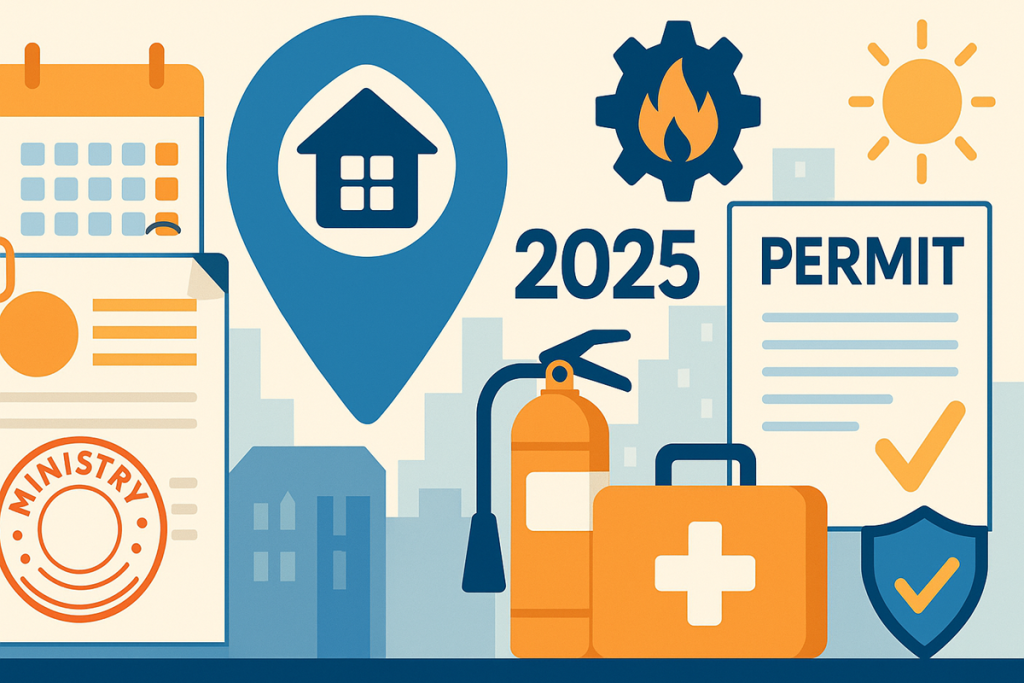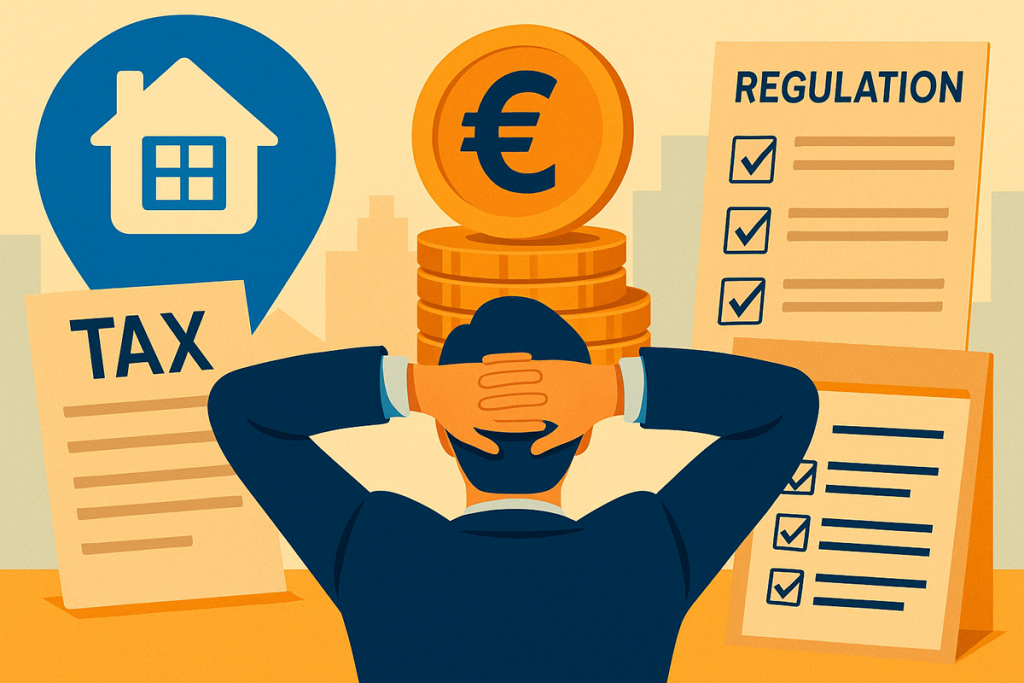
The Ministry of Tourism issued circular 19231/19.09.2025, which was also communicated to the Association of Short-Term Rental Property Companies (Stama Greece).
This document specifies the standards that short-term rental properties must meet as of October 1st, 2025, in implementation of Article 3 of Law 5170/2025.
The circular applies both to properties already registered in the Short-Term Rental Property Registry of the Independent Authority for Public Revenue (AADE) (with a Property Registry Number – AMA) and to those that will be registered in the future.
Standards for Short-Term Rental Properties
According to the circular, every property offered for short-term rental must meet the following requirements:
- Be designated as primary-use spaces and have natural lighting, ventilation, and air conditioning.
- Have liability insurance against damages or accidents.
- Provide a valid Electrical Installation Declaration (issued by a licensed electrician), fire extinguishers, smoke detectors, residual current devices (RCDs), and emergency exit signage.
- Possess a valid pest control and disinfection certificate, a first aid kit, and a guide with emergency phone numbers.
A. Primary-use spaces – Lighting – Ventilation – Air Conditioning
Primary-use spaces (bedrooms, living rooms, kitchens, offices) must:
- Have a minimum height of 2.50 m.
- Provide natural lighting (at least 10% of the floor area) and natural ventilation (at least 5% of the floor area).
- Openings must face a communal space, uncovered area, or semi-outdoor space.
- Include air conditioning (at least in bedrooms) with cooling-heating systems (split type or portable).
- Properties located in mountainous areas at altitudes above 600 m are exempt from mandatory AC installation.
B. Liability Insurance
Each property must have a valid liability insurance contract with a legally licensed insurance company, in force during the rental period.
The registry of authorized insurance companies is available on the website of the Bank of Greece.
C. Electrical Safety – Fire Protection – Signage
Each property must include:
- A valid Electrical Installation Declaration (EID) confirming the presence of an RCD (Residual Current Device).
- At least one fire extinguisher (6 kg) per 100 m², with extinguishing capacity of 21A-113B-C.
- Smoke detectors in bedrooms and kitchens.
- Emergency lights and exit signage at all exits.
D. Pest Control Certificate – First Aid Kit – Emergency Numbers
- A valid pest control and disinfection certificate from a licensed company.
- A first aid kit labeled in both Greek and English.
- The first aid kit must include the following items:
| Item | Quantity |
|---|---|
| Hydrogen Peroxide | Bottle ≥ 50 cc |
| Povidone-Iodine 10% Solution | Bottle ≥ 30 ml |
| Sterile Gauze Pads | 5 pieces (various sizes) |
| Fabric Adhesive Bandage (≥ 3 cm width) | 1 box |
| Elastic Bandage | 1 piece |
| Medical Tape | 1 piece |
| Pressure Hemostatic Bandage | 2 pieces (various sizes) |
| Burn Hydrogel Sachet | 2 pieces |
| Ammonia Stick (for insect stings) | 1 tube |
| Latex Gloves with Powder, Non-Sterile | 4 pieces |
- A list of emergency phone numbers must be displayed in a visible location
| Service | Phone Number |
|---|---|
| European Emergency Number | 112 |
| Hellenic Police | 100 |
| Fire Department | 199 |
| National Emergency Aid Centre (Ambulance) | 166 |
| Poison Control Centre | +30 210 7793777 |
| Hellenic Coast Guard | 108 |
| National SOS Helpline | 1056 |
| Nearest Hospital | (insert local number) |
| Taxi Service | (insert local number) |










